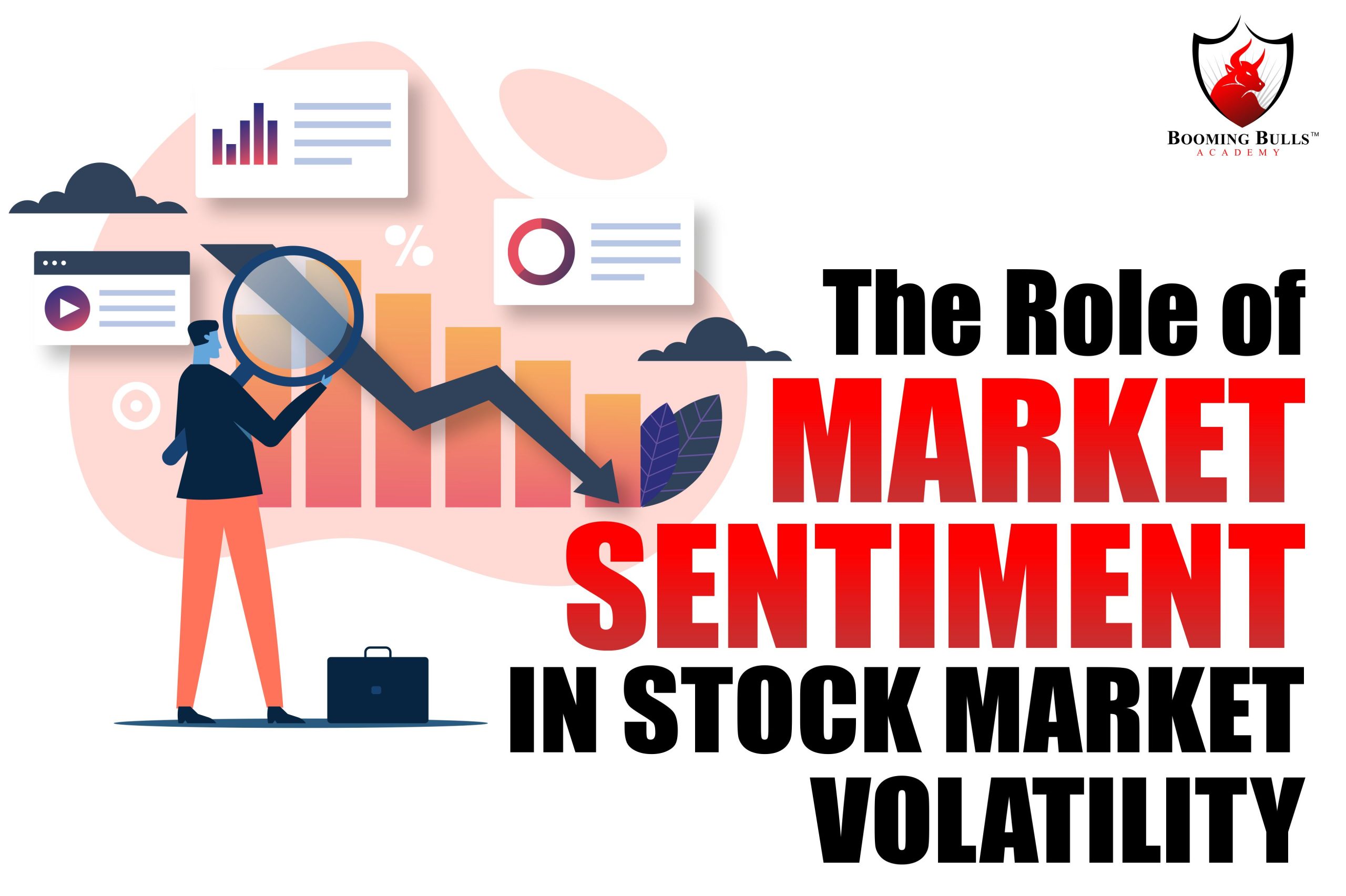

Stock market volatility is an inherent aspect of the financial world. Fluctuations in stock prices can cause significant shifts in market sentiment, which, in turn, can amplify the volatility. Understanding the relationship between market sentiment and stock market volatility is crucial for investors and traders seeking to navigate the complexities of the financial markets.
In this blog, we will explore the role of market sentiment in stock market volatility and its implications for investors.
Before delving into the role of market sentiment, let’s briefly define stock market volatility. Stock market volatility refers to the degree of variation or dispersion in the prices of stocks traded in the market. It is typically measured by calculating the standard deviation or the average true range of price movements over a specified period. High volatility indicates larger price fluctuations, while low volatility suggests more stable price movements.
Market sentiment refers to the overall attitude or feeling or psychology of market participants toward a particular financial market or security. It is driven by a combination of various factors, including economic indicators, company earnings, geopolitical events, investor expectations, and human emotions such as fear and greed. Market sentiment can be classified into bullish (positive), bearish (negative), or neutral (neutral) sentiments.
Market sentiment plays a significant role in driving stock market volatility. When market sentiment is positive, investors are optimistic about the future prospects of the market or specific stocks, leading to increased buying activity.
This influx of buyers pushes stock prices higher, causing volatility to rise. Conversely, during periods of negative sentiment, investors become pessimistic and tend to sell off their holdings, resulting in downward pressure on stock prices and increased volatility.
Market sentiment is heavily influenced by herd mentality and behavioral biases exhibited by investors. Herd mentality refers to the tendency of individuals to follow the actions of the crowd, even if those actions may not be rational or based on sound analysis.
This behavior can lead to excessive buying or selling, creating volatile price movements in the market.
Additionally, behavioral biases such as fear, greed, and overconfidence can amplify market sentiment and contribute to heightened stock market volatility.
For example, during times of market euphoria, driven by greed, investors may chase after high-flying stocks without considering their underlying fundamentals, leading to price bubbles and subsequent crashes.
The advent of technology and social media platforms has significantly amplified the impact of market sentiment on stock market volatility. News, both positive and negative, spreads rapidly through various channels, influencing investor sentiment in real time. A single tweet or news headline can trigger a wave of buying or selling, resulting in heightened volatility.
Understanding the role of market sentiment in stock market volatility is crucial for investors. It highlights the importance of assessing not only fundamental factors but also the prevailing sentiment before making investment decisions.
Investors should remain vigilant, conduct thorough research, and avoid making impulsive decisions based solely on market sentiment. Diversification, risk management, and a long-term investment perspective can help mitigate the impact of short-term market volatility caused by sentiment-driven fluctuations.
Market sentiment is a powerful force that can significantly impact stock market volatility. Investor attitudes, emotions, and behavioral biases collectively contribute to the sentiment, driving buying and selling patterns in the market.
Recognizing the role of market sentiment and its influence on volatility is essential for investors to make informed decisions and navigate the complexities of the stock market successfully.
By combining a comprehensive analysis of fundamental factors with an awareness of prevailing sentiment, investors can improve their chances of achieving long-term investment goals while minimizing the impact of short-term market fluctuations.
If you wish to learn more about the stock market, trading strategies, Intraday trading Strategies, etc., in greater detail, you will find the relevant articles on the Booming Bulls Academy blog.
If you like this article, don’t forget to share it with your friends, family members, and fellow traders so that they can also improve their chances of achieving long-term investment goals while minimizing the impact of short-term market fluctuations.
Open a Demat Account using our link to get support from us – https://bit.ly/3gyhIWN and send your ID to [email protected]
Happy learning!
I am thankful to you for imparting great knowledge .
Very thankful sir for great knowledge and experience
Glad that you find the blog helpful; we constantly try to bring helpful blogs for our traders and will continue doing so.